Education is only as good as a student’s capacity to learn—with this principle in mind, there is simply no understating the importance of learning how to improve learning skills from a young age.
As you’ll discover, developing curiosity that can lead to research skills for students of all ages starts with building the right foundation. Whether you’re a parent or an educator, here’s how to get started and where Effective Students can help.
Study Skills for Elementary Students
The most important elementary study skills are those that build the foundation for future progress in education. As with all students, science has taught us that content retention improves when students use multi-sensory practice coupled with retrieval practice. In simpler terms, that means students are actively engaged in writing material and typing if they struggle with dysgraphia (a learning disability that affects the ability of a learner to write). Engaging students in this process of thinking about their thinking is called ‘metacognition’. We like to position it as ‘how quickly can you get the information to stick?’. From the student’s point of view, this is how to make learning a game.
Essential Study Skill: Retrieval Practice
Let’s break down a bit further with our first essential learning skill, retrieval practice. According to an official source from the Institute of Education Sciences, “Retrieval practice is a strategy in which bringing information to mind enhances and boosts learning. Deliberately recalling information forces us to pull our knowledge “out” and examine what we know.” As an example, a student is likely to absorb the material better when they recall the information as opposed to skimming over the material in a textbook or even their notes—this is what makes study strategies like flashcards particularly effective. When spaced out over time, retrieval practice makes content stick faster than re-exposure to the same material because typical re-exposure is the same thing as ‘reviewing’.
So, why don’t students utilize retrieval practice more often? Usually for two reasons: 1) they are not taught how or why and 2) it takes cognitive effort!! When younger students learn that self-testing is a core to ‘studying’, they are less apt to regress to ‘reviewing’ and calling it studying.
Fun study skills activities to develop retrieval practice
- Spelling list practice where students challenge themselves to correct their own spelling mistakes
- Math facts practice with apps on an iPad – the goal of each fact family under one minute
- Building practice tests out of a study guide with peers
- Making an answer key to the study guide test
- Making games or puzzles (like matching games) out of study guides
- Quizlet games
Study Skills for Middle School
As students get older and increasingly gain confidence with executive functions, essential study skills become more important and advanced. With a proper foundation of strategies for executive functioning in place, students are more prepared to take on the challenges that come with more independent learning. Here’s a quick overview on how to approach middle school study skills for later success.
Essential Study Skill: Self-Testing
Without a doubt, early study skills for teens and students around the time of middle school are predicated on their ability to optimize their time learning material with multi-sensory activities and perform self-testing and utilize study guides effectively. Research has shown that self-testing is an essential tool for content retention as are multi-sensory learning activities, particularly for those kinesthetic learners. Using study guides to generate a self-testing tool or practice test, helps the student identify what is important to learn and a tool for identifying what they don’t know so they understand where to focus their efforts.
When using a tool like Quizlet, it helps to tailor the study guide to the material and personalize it to ensure it is compatible with your student’s preferred style of learning. Additionally, creating an answer key within the study guide can really help the student understand the material and can improve retention during self-testing. This is why when a student uses a tool like Quizlet, creating their own set, rather than just using another one they find, is important. Ultimately, the effectiveness of a study guide is dependent upon the amount of effort involved to produce this important learning device, so your mileage may vary!
Study Skills Needed for College
Students preparing to go to college are ready to handle more responsibilities when it comes to executive functioning. More than ever, this is a time when students should prioritize improving their attention span and taking more control of their education—knowing the difference between studying and really “studying” is imperative. The good news is that it’s not too late to create good habits—here’s how to get started.
How to Improve Study Skills: Time Management, Structure, Self-Awareness & Self Advocacy
In a year with so many learning challenges, students of all ages have really struggled—particularly those with ADHD.
Why were ADHD students disproportionately affected by the migration to virtual learning? Ultimately, many of these students are dynamic and kinesthetic learners—they improve their ability to attend and digest information by engaging in person and having a dialogue with teachers and peers.
In the absence of in-person instruction and structure of attending class (synchronous vs asynchronous) and a schedule, students received a crash course in self and time management. Some did well and others simply didn’t have the tools to be successful.
Creating a visual support/calendar helps students see their time and tasks in one palace so they have a way to make decisions about where to spend their time without over-taxing their working memory.
Simply put, the best way to improve learning skills is for students to learn to test what works best for them in each class because each class may require a different strategy. This requires us (the adults) to be comfortable with experimentation. By its nature, this process will have some successes and some failures but that is part of refining the process.
In the book Think Again, by Adam Grant, one of the main points he makes is the importance of having the ability to think and then rethink how we do things—to understand the value of learning to see things more clearly and make changes to our approach. There are those who learn by experimentation and those who learn by reading a manual. Giving kids the freedom to learn which kind of learner they are can lead to greater autonomy.
Improve Learning Skills and Executive Functioning With Effective Students
Educators must be intentional about how study skills are taught. We once surveyed a group of 4th – 6th-grade teachers about who should teach study skills—each grade level said the previous grade level should be responsible for doing so! To better equip teachers with a proven study skills curriculum, Effective Students provides a robust educational course and complete study skills and executive function curriculum with a systematic approach, so educators can better assist their students to experience success and instill the confidence to keep going!
Effective Students provides study skills lesson plans, training workshops, instructional videos, student workbooks, decks for teacher-led instruction, handouts for parents, and quizzes to check for understanding.
Executive Functioning Curriculum
Our team of executive function experts helps teachers make learning study skills fun for Middle, Elementary, and High School students. Through our courses, teachers will receive assistance from expertly trained skills learning and executive functioning coach, receive ongoing support from Effective Students teaching teams, and learn how to collaborate to provide better executive functioning instruction in as little as 15 minutes each week!
Want to learn more? Check out our summer workshops for educators.









